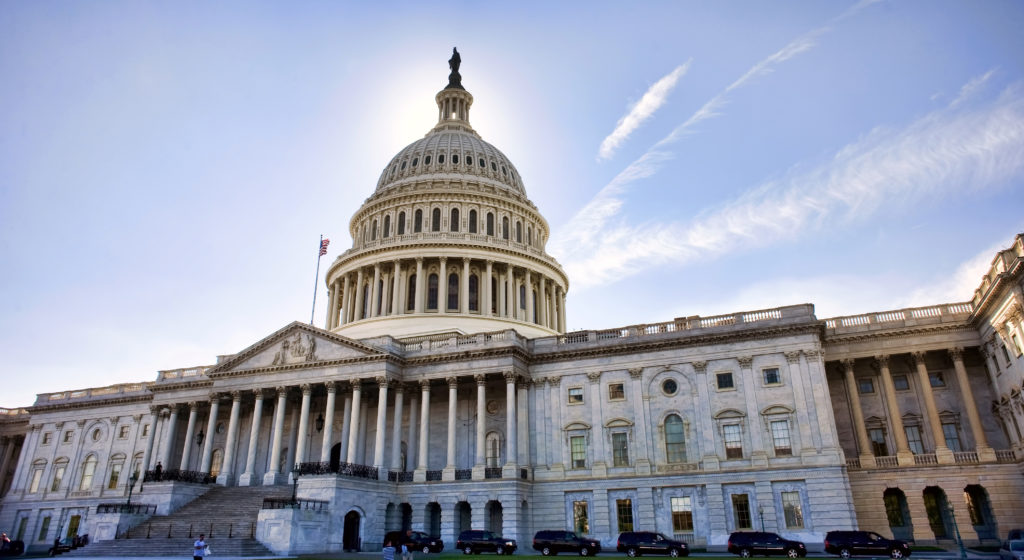
Last month, House of Representatives lawmakers approved an amendment made to at least double minimum insurance requirements for commercial motor vehicles.
The highway funding bill would increase minimum liability insurance from $750,000 to $2 million, and was introduced by Illinois Rep. Jesus “Chuy” Garcia to amend the INVEST Act transportation bill. The House Transportation and Infrastructure Committee passed the amendment by a 37 to 27 vote.
Although the bill has been widely criticized by trucking industry professionals saying owner-operators and smaller carriers could face major challenges due to costs, Garcia defended his beliefs on Twitter.
“Minimum insurance requirements for motor carriers were established in 1980 and have never been adjusted for inflation,” he said. “It’s inadequate and saddles families with crippling medical care costs resulting from catastrophic crashes. My amendment with Rep. (Adriano) Espaillat, Rep. (Steve) Cohen, and Rep. Hank Johnson modestly increases the minimum insurance requirements and requires that it keep up with inflation. This isn’t about trial lawyers or an attack on truckers. It’s about supporting families who have lost loved ones.”
The bill is also currently opposed by the American Trucking Associations and the Owner-Operator Independent Drivers Association.
“ATA does not support an arbitrary increase to minimum insurance limits,” said ATA vice president of communications, Sean McNally. “To be an effective tool for improving safety, there must be an open, fair, and data-driven process to inform and guide what insurance limits should be, not just inserting a number that trial lawyers pull from thin air.”
The industry has seen insurance premiums steadily rising for motor carriers over the last few years, which has also aligned with increasing amounts of “nuclear verdicts” against trucking firms. But although fleets have been paying higher costs for insurance, premiums have stayed rooted in safety standards.
Still, amendment opposers are convinced higher prices will prove detrimental to smaller businesses throughout the industry.
“Raising the insurance minimum will do nothing to improve highway safety and would be nothing short of disastrous for many small motor carriers that are struggling to stay in business,” said OOIDA director of public relations, Norita Taylor.
On the other hand, the bill’s supporters, including some trucking safety groups, have praised the passing of the amendment, deeming it a victory for the families of crash victims.
“#SaferTrucking Update: Rep. Chuy Garcia’s Amendment 062 says the #InfrastructureBill passed by a vote of 37 (Ayes) – 27 Nays!” tweeted the Institute for Safer Trucking. “This amendment will help families who have survived truck crashes and help make the trucking industry safer.”
In the American Transportation Research Institute’s recent study of nuclear verdicts, results from analysis of 600 jury verdicts from between the years of 2006 and 2019 and from surveys by defense attorneys, plaintiff attorneys, insurance carriers, and industry experts showed concerning trends.
“One respondent specified that ‘low-risk’ motor carriers are experiencing 8% to 10% increases in insurance costs, while new ventures and average-to-marginal carriers are experiencing a 35% to 40% annual increase–a trend that has occurred for three consecutive years,” said that institute in its study. “Based on ATRI’s operational cost data, small fleets and owner-operators pay out-of-pocket considerably more on a per-unit basis than large fleets.”
FMCSA said that although it had received a large number of comments in response to the ANPRM, the commentary “did not provide responsive information necessary to allow the agency to proceed to a notice of proposed rule-making.”
The agency continued: “In particular, commenters did not provide sufficient costs or benefit data, and the agency was unable to otherwise obtain sufficient data on industry practice with respect to the level of liability limits in excess of the agency’s minimum financial responsibility requirements, the costs of such premiums and the frequency of [them], and the amount by which bodily injury and property damage claims exceed policy liability limits.”
FMCSA said based on this information, it could not determine “potential increases in insurance premiums associated with increased financial responsibility limits, or the impact of an increase in minimum financial responsibility requirements on insurance company capital requirements.”
Before the amendment goes into effect, the INVEST Act will still need to pass in both the House and the Senate.




